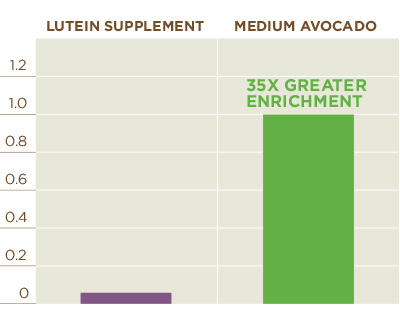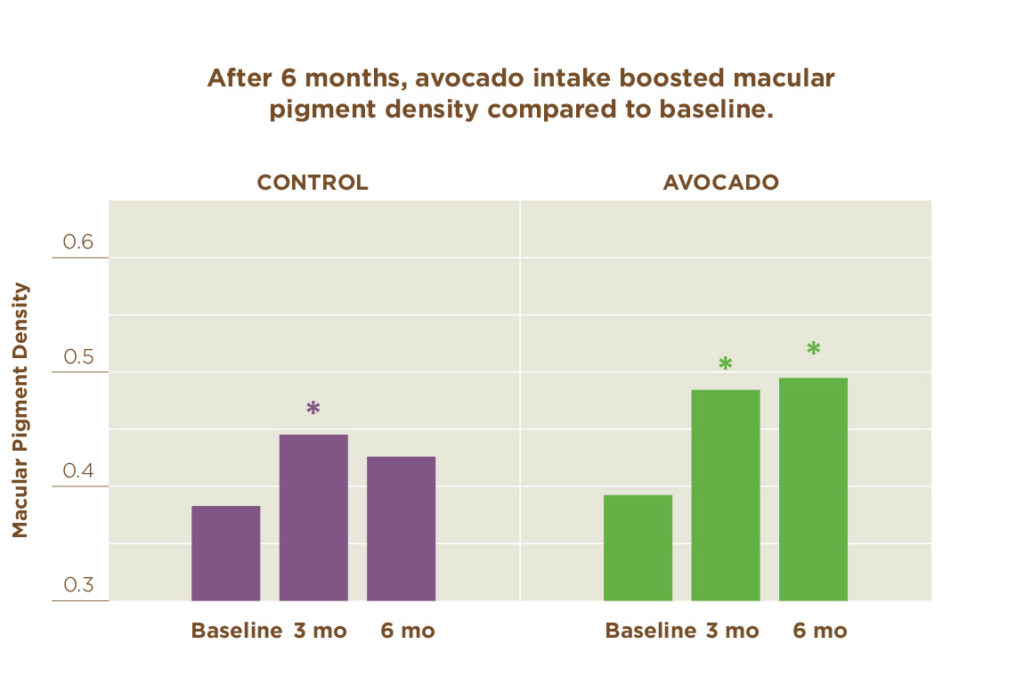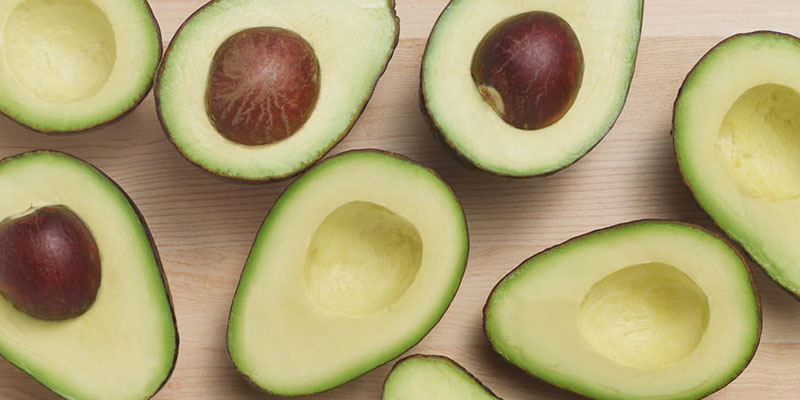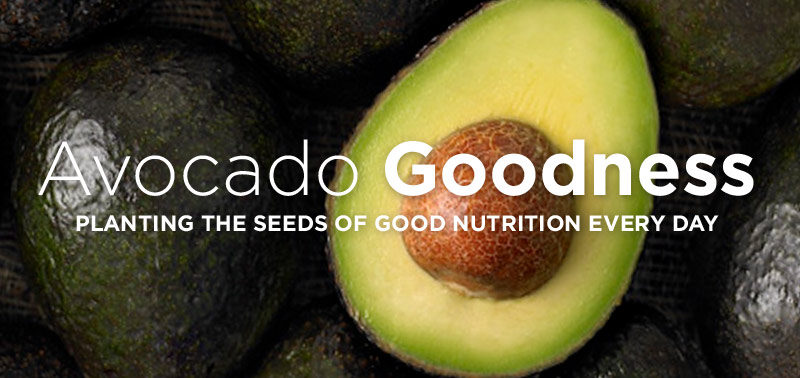Study Overview
The study was funded by the United States Department of Agriculture and the Hass Avocado Board (HAB) and published in Nutrients. The randomized controlled trial on 40 healthy adults, 50+ years of age, investigated whether consuming one fresh avocado per day could improve cognition and macular pigment density, compared to a control group.
Researchers found that people who consumed one avocado per day for six months had higher serum lutein levels and greater MPD relative to baseline measurements. The avocado group also had significant improvements in cognition as measured by improvement in working memory. Additionally, as macular pigment density (MPD)1 increased, the improvements in working memory and efficiency of approaching a problem also significantly increased.
Published: Nutrients
Study funded by Hass Avocado Board
Category: Brain Health, Healthy Living at Every Age, Weight Management
Download Scientific Summary PDF
Read the Press Release
See Published Study
Key Takeaways
The ability to retain spatial information and manipulate items in working memory significantly increased after 3 months of avocado intake.
Spatial planning & working memory to solve problems significantly improved after 6 months of avocado intake.
Consumption of a medium Hass avocado per day for 6 months did not alter body weight.
Avocado significantly increased serum lutein levels by 25% after 6 months of intake, relative to baseline. The control group only had a 15% increase in serum lutein levels.
Avocado significantly increased macular pigment density (MPD) by 26% after 6 months of intake, relative to baseline. The control group had no significant increases in MPD at 6 months.
The study suggests a dietary intervention with avocados to increase neural lutein may be an effective dietary strategy for cognitive health.
Study Details
The randomized controlled trial tested the effects of 6-month daily consumption of a fresh medium Hass avocado vs control (1 medium potato or 1 cup of chickpeas a day) on cognitive function in 40 healthy adults, 50+ years of age. Participants were otherwise instructed to not change their dietary habits throughout the study period. Chickpeas and potatoes were used as a control because they provided a similar level of calories but provided a negligible amount of lutein and monounsatured fat.

Avocados & Lutein
Based on these findings, researchers concluded that one avocado per day may be effective at increasing neural lutein levels, which is related to better cognitive performance in older adults. Compared to previous lutein supplement studies, the authors suggest that the unique combination of monounsaturated fats, fiber, lutein and other bioactives make avocados particularly effective at enriching neural lutein levels.
Lutein enrichment of the eye in response to daily lutein supplementation or avocado intake.
This study included a whole avocado each day (369 mcg lutein); more research is needed to determine whether the results could be replicated with consumption of a single 0.8 serving, 1/3 of a Hass avocado (136 mcg lutein). Also, while the conclusions drawn are from a single study that cannot be generalized to all populations, the study suggests a dietary intervention with avocados to increase neural lutein may be an effective dietary strategy for cognitive health.


Hass Avocado Board Supports Nutrition Research
The Hass Avocado Board (HAB) is a promotion, research and information organization under supervision of the United States Department of Agriculture. HAB has a science research pipeline of ongoing clinical studies investigating the relationship between fresh avocado consumption and weight management and risk factors for cardiovascular disease and diabetes. And, based on their nutrition and phytochemical components, emerging research suggests that avocados may play benefit many emerging areas, including skin, eye, joint and cellular health.
References:
1. Macular pigment density is the amount of lutein and zeaxanthin that accumulate in the macula of the eye. Increased MPD is associated with improved memory and cognition.







